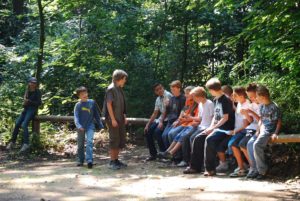
Quality Time With Teens
One of the many reasons why I love working with teens is because of their honesty. They will tell it like it is, and I love it.
Most recently I wanted to know what teens value. What matters most to them and why. I asked two groups of teens (about 40 in total), what was more important to them: family time or personal time.
I will be honest, I was surprised by their response. All but three teens said family time.
When I asked further about their thoughts on personal time. They all agreed it was important to them. However, spending quality time with their family meant more to them, and many of them felt that family time was like personal time.
Isn’t that amazing to hear???
The teens continued to share why they valued family time more and it made sense. All of them agreed that their family is the most important thing to them. Their family is their support system, even more than friends, and they do love their friends. They feel like they can be themselves when they are with their families, more than anyone else.
They also mentioned that as they are getting older, they don’t have as much family time as they would like because everyone in their unit is busy. These teenagers have a lot of commitments and so do their parents. Since it is so scarce even the smallest amount of family time is important to them. In the end, they shared that they wished they had more time with their family.
What can we do to have quality time with our teens? Here are a few tips:
- Tech free dinners
On those rare nights when everyone is able to sit at the dinner table, make it a habit to not bring your devices to the table. Better yet, put them on airplane mode or leave them on silent and leave them in another room. Be present and take the time to allow everyone to share something from their day. If you feel like your teen is reluctant to talk to you, instead of asking “How was your day?” ask “What was something that made you laugh today?” or “What was something you learned today?” and make sure everyone shares.
- Step into Their World
What is your teen passionate about? Have them teach you something that interests them and listen and learn from them. Let them explain why they love what they do. And if you are able to, try it out.
- Create a tradition
A majority of the teens shared that the only day they can have a family dinner is on Sunday. They appreciated the tradition and knowing that they had that time to spend together. Other teens shared they have movie nights once a month or how Sunday football is their opportunity to bond with their family.
- Get Involved in Your Community Together
Most teens I speak to are inspired by the idea of being a Global Citizen and giving back to their community and the world. Find a cause that matters to you both and find ways you can bet involved together. If there is a local organization, go to meetings together or get involved in their campaigns.
I hope you are spending quality time with your teen. Let me know how you make the most out of your family time?
Much love,
Andrea
Exclusion hurts
A few days ago, I was having lunch with a friend at a local café, when we were suddenly distracted by three moms sitting at the booth behind us. I honestly wasn’t trying to eavesdrop, but their conversation got louder and more emotional that we couldn’t focus on our own conversation.
Long story short, one of the moms was really upset because she had seen on Instagram that the daughters of the other two mothers hadn’t invited her daughter to a gathering. She was angry that her daughter was excluded and came to speak up for her. She shared that she follows her daughter’s friends on social media to keep tabs on what’s going on. By the way, I wasn’t intentionally listening in, they just spoke so loudly and my friend and I were totally distracted by them.
I was surprised by what I was hearing and at first I found myself judging them and the situation. I wondered, “Why are they fighting their daughters’ fight?”, “What lessons are their daughters going to learn through this?” and finally “What’s really going on here?”
One of the worst feelings is the feeling of being excluded and not part of the group. No matter how young or old, it still stings and burns. And I can imagine that the mom at the table has had her fill of personal experiences of being excluded and not accepted. And we can swallow that pain and hurt when it happens to us. But when it happens to our babies (child, tween or teen) it brings up our personal pain and we want to do anything possible to protect our children. We don’t want them to experience the same hurt and pain that was so awful and I get that.
But when we fight their fight, speak up for them, or address their pain for them, what do our daughters learn?
“I need my mom to speak up for me.”
“Being excluded is the worst thing in the world.”
Or worse “I don’t have a voice.”
It is important that we are mindful of the message we send our children when we speak for them. When they are hurt what they need is for us to listen, validate them and if they are open, help them find solutions to deal with the situation. By no means is this an easy task, and it will require patience and consistency on the part of the adults. But by going in and taking care of the fight for them isn’t helping them either, at least not in the long run.
Let’s help our children find their voice when they’ve been hurt. This is true empowerment.
Much love,
Is your teen a control freak?
Some teenagers HATE group assignments. I get it. I was that teen. Group work often shows our character strengths and flaws and sometimes one student ends up doing all the work. As a teen, I felt like I always got stuck doing all the work.
I remember one group project (10th grade, US History I), four of us met up at my house to work on an assignment. We had to present a significant Civil War battle and teach the historical significance to the class. After the presentations, the class would then vote on the best presentation and the group with the highest number of votes would receive an automatic 100% on the next quiz. I was highly motivated to do well on this assignment. On the last project, my partner and I had received the highest number of votes and I wanted to go for it again. To my surprise, my partner, and best friend at the time, decided to team up with someone else. Why would she choose someone else, when we just got a 100 on a quiz grade? Our project rocked!
So, I found a new group to work with and we agreed to meet at my house. We started to work on our assignment together, and before I knew it, I was in the room by myself working on the project while my groupmates were in the other room chatting. And I was furious!
We didn’t get an A, and I was even more furious than before. The project was too much for me to do on my own, and even though I tried, I couldn’t carry all the weight and I blamed them for our grade.
“They didn’t help me!”
“I got stuck doing all of the work!”
“I let them walk all over me.”
Thankfully, we met up at my house to do the assignment and my mother was in the other room the entire time working and preparing dinner and witnessed the entire event. When we received our scores, I complained to her about the project and our grade. I shared how I hated being the one doing all the work, that I felt I had been taken advantage of by my friends and that I hate working in groups. She listened and let me vent. And then she asked me if I wanted to hear what she thought and saw that I day.
The only reason why I was open to listen to her was because she asked me and I was truly upset with the outcome and knew I would have plenty more group projects coming my way that year.
So, I listened and I couldn’t believe it. What she saw was completely opposite to what I experienced. She told me that I was nit-picking their ideas. If I didn’t like how someone was gluing I took the hot-glue gun out of their hand and took over. I was bossy and basically pushed everyone out of the room. I didn’t listen to anyone’s ideas, and didn’t trust the others to do their part.
Was I really like that? Did I really do that?
Holy crap, I was the worst!
The truth is, up until this point this was pretty much the way I handled all group assignments.
Thankfully my mother spoke to me and let me see what she saw when I was ready to hear and see it. Until that point, I would never have listened or believed her. I had been told I was bossy before, and I knew it, but nothing changed. I didn’t change.
Maybe it was because a grade was attached to the outcome, or because I was extremely competitive and wanted to get all the votes or I didn’t like that my friends didn’t want to work with me. I was open to change and I was different and my mom seized the opportunity to teach me a lesson. I am so glad she did because occasionally, my control freakiness can come out and I remember that group project when my energy pushed everyone out of the room.
That day I learned a huge lesson about myself and about others. I became very aware of how my energy can push away others when trying to control a group. This is an obvious lesson, but one that I couldn’t see at the time.
The second lesson that I learned that day was how you can’t force someone to see what they can’t if they are not open to it. We must be patient with teens, and find the opportunities when teenagers are willing to listen. And most importantly, ask them if they want to hear a different point of view.
Did I stop becoming a control freak that afternoon with my talk with my mom? No. It has and is still a journey. But from that day forward I started my path of self-awareness and started taking responsibility for my role in my relationships.
So, find the moments when your teen is connecting with you and seize them, I’m very happy my mother did.
Much love,
Teens can and will change the world
 Two weeks ago, I had the honor to accompany an amazing group of teenagers to We Day UN in New York City. Me to We is an amazing organization whose vision is “to empower people to transform local and global communities by shifting from “me” thinking to “we” acting. We Day is a celebration of young people committed to making a difference.
Two weeks ago, I had the honor to accompany an amazing group of teenagers to We Day UN in New York City. Me to We is an amazing organization whose vision is “to empower people to transform local and global communities by shifting from “me” thinking to “we” acting. We Day is a celebration of young people committed to making a difference.
It was great to hear the well-known speakers, but what motivated me the most was to hear from the young local leaders who have found problems both in their community and globally and created solutions. That’s what I love about youth, when they see a problem or injustice that truly moves them, they will work to no end until they can find a solution.
Youth are resilient and strong. When they are moved by an issue and inspired to act, no matter how small or big, they can make a difference in someone else’s life and at the same time make a difference in their own life. It is fundamental that we let our young people know that no action is futile and that they can make an impact and that they know they have our support and encouragement.
I must highlight the teenagers I was honored to accompany at WE Day UN. They are members of a local Free the Children Chapter who is advised by my friend and colleague, Will Lawlor. These awesome teens organize and carry out various fundraising efforts each year, from candy sales, various volleyball tournaments at their school, they volunteer bagging at local food stores, they team up with other clubs to organize a Color Run in May and that’s just a few of their fundraising activities. Each year this group fundraises over $10,000 that goes towards the building of a school in an underdeveloped country. This spring some of the members of the club are going to participate in a volunteer trip to a small town in the Andes Mountains in Ecuador to work on a clean water project.
If your teen is moved by an issue either in your community or globally, encourage and empower them to take action. Not only will they make a difference they will learn so much about themselves and that is invaluable.
Much love,
How to encourage a Growth Mindset in your teen
I hope you enjoyed last week’s blog on the benefits of developing a growth mindset in teens. If you missed it you can read it here.
So, you are aware of why your teen must have a growth mindset. Now what? This week I want to share ideas and strategies to help your child develop a growth mindset. A reminder that it will not happen overnight, but be consistent and have faith in your ability to influence your teen.
Have a Growth Mindset
When it comes to children and teens, we must model the behavior first. Children watch our every move and if you aren’t practicing it, chances are they won’t. Challenge yourself and view challenges as opportunities to learn and grow. Be careful not to judge yourself when struggling through a challenge. Your children will learn so much by how you speak to yourself (or judge yourself) and it is essential you set the healthy example.
Celebrate Mistakes
I love the story Sara Blakely, the founder of Spanx, shared on CNBC. When Sara was growing up, her father would ask her the same question at dinnertime. “What have you failed at this week?” By celebrating and recognizing failures, Sara learned as a child to not focus on the outcome but to focus on the learning and trying. Failing is truly learning and when we can make the mental shift we are able to embrace failures, we are not afraid to take risks that allow us to grow and learn.
Focus on the Process Over the Outcome
Learning and success is a journey. Instead of focusing on winning or getting a good grade, focus on the actions that lead to their successes. Children develop confidence when they learn that success doesn’t define them, but who they become and learn through the process.
Even if you think your child isn’t listening to you, they are. Children watch and listen to our every move and are listening to our every word. Be mindful of how you speak to yourself and your own mindset. And again, have faith in your ability to influence your teen.
Much love,
Andrea
Why Your Teen Must Develop a Growth Mindset
Nowadays we hear everywhere the importance of having a “growth mindset”. The term was developed by psychologist Carol Dweck. In her book, Mindset: The New Psychology of Success, Dweck writes, “In a growth mindset, people believe that their most basic abilities can be developed through dedication and hard work – brains and talent are just the starting point. This view creates a love of learning and a resilience that is essential for great accomplishment.”
Now more than ever with the fast pace life that all of us live in, it is essential that teens learn that they understand that they can develop new abilities and that setbacks are opportunities to learn. Having a growth mindset is essential to learning, development and in dealing with the stress and pressures of life.
So, what are some of the results and benefits of teens having a growth mindset? There are so many benefits and I am just going to outline a few here. In my next post, I’ll share what you can do to foster this mindset in your child.
Enjoyment in Learning
Individuals with a growth mindset truly enjoy the learning process. They understand that they are growing and building upon previous knowledge and experiences. They are curious and are likely to seek out answers and are willing to explore their community and the world. These teenagers look for opportunities to learn new skills that will help them become their best self because they understand that life is a series of lessons.
Increased Self-Confidence
With a growth mindset, we know that we aren’t always going to get the right answers, but at the same token we have the confidence to try and to persevere. It is understood that making a mistake is part of the process of growing and fear isn’t associated with it. These individuals do not define themselves by their failures and understand that failures are an opportunity to reflect and make changes to their plan.
Pursue Passions and Interests
For most people with a growth mindset, pursuing a passion or interest is a priority. They are curious and enjoy a challenge because of the opportunity to learn something new and meet new people. These individuals understand that their abilities can change and are willing to take on challenges.
Inspire Others
When you no longer have a fear of failing, you feel free and confident to pursue interests and challenges. These people are the ones that inspire others that they are worthy to do the same. They teach others to not live in fear to pursue their passions.
Take Responsibility
People with a growth mindset take responsibility for their roles in a situation or problem. Teens who have a growth mindset can face the consequences and will take ownership because they have developed a sense of responsibility. This doesn’t mean they will quickly see their error, but are open to see different viewpoints.
Teenagers who develop a growth mindset experience more happiness and less stress. They tend to have strong relationships and are confident to be themselves. Next week I will share how you can help foster a growth mindset in your teen so they can experience the benefits.
Much love,
Andrea
4 Tips For an Excellent School Year
Set a goal for the new school year
Get yourself organized with a calendar
Seek help when you need it
Much love,
Andrea
The Most Challenging Experience of My Life
I just got back from the most amazing yet challenging experience of my life. Back in May of this year I was selected to team with Project Athena Foundation, a non-profit organization dedicated to helping women survivors (and now men) of medical or other traumatic setbacks transition from survivor to warrior and achieve their adventurous dreams. I joined as a Goddess (Fundraiser) and as a team member in an adventure to hike the Grand Canyon Rim2Rim. We would start at the South Rim trail, hike down, then across the canyon and finally up the North Rim trail (a 6,000 foot elevation gain), a total of around 24 miles.
When I started this adventure back in the spring, I was excited for the opportunity to hike the Grand Canyon, to try something new and completely out of my element and to be part of an organization that was all about empowering individuals that have faced serious (and extreme) challenges. What I didn’t know was the amount I would learn and grow not only in training (which wasn’t always fun and very inconvenient) and in hiking the Canyon but watching amazing women face challenges in the Canyon and work past them. We had our share of challenges both before and during the hike. These challenges included physical injuries (blisters, leg cramps, back spasms etc.) and emergencies back home. The Canyon kicked our butts and put us on an emotional roller coaster!
For me, to see these amazing survivors put their past behind them and create a new path for their life and supporting while helping others even though it required so much more out of them, was truly amazing. No words can explain that feeling. No words can explain being part of someone’s healing. I cannot believe I was chosen to be a part their and my teammates journey!
The Grand Canyon Rim2Rim hike was without a doubt the most physically, mentally and emotionally challenging experience of my life. We started our hike at 11:18 pm, walked through the night without sleep, ran out of water for 3-4 hours during the hottest portion of our hike because two water stations were broken and finished after 16 hours. It was hard, it was grueling, my entire body hurt afterwards and I wouldn’t take anything away from my journey.
Every single person on that hike faced a challenge and overcame it to get out. We encouraged one another, my teammates shared their water with me when they only had only sips left. I will be forever grateful to the women and a few great men that were on this adventure, to this organization that provides opportunities of growth and learning to not only survivors but to the team members who fundraise for them. We started off as strangers but will forever be bonded as friends, teammates and adventure athletes.

Thank you for reading my experience and for those of you who donated, I am humbled by your support. If you have never heard of Project Athena, go to www.projectathena.org, this amazing organization is changing lives by giving people the opportunity to push their limits. I will forever be grateful to our amazing coach, Amanda Webb, Project Athena Founder, Robyn Benincasa, our Trail Angels, and my amazing teammates, individuals who each brought their unique super powers to the trails.
Much love,
Andrea
Did you see it?
If you live in the continental United States, chances are last Monday all you heard throughout your day or saw on TV or social media was about the solar eclipse. Almost everyone stopped what they were doing to watch the eclipse. I’m in New Jersey and I didn’t get the amazing view that people in other parts of the country did, but I still got to see this tiny crescent on my camera and feel the temperature drop. It was pretty cool!
What I found even more amazing was how the solar eclipse made a change in everyone’s energy. It seemed for the first time in months there was an energy of excitement everywhere. People were happy and eager to witness this amazing event. Adults and children made special viewing glasses out of cereal boxes or shoe boxes. Anywhere you turned, people were talking about the eclipse. Strangers asked one another, “Did you see the eclipse? Wasn’t that cool?!”
Did you feel the connection? I sure did.
And it made me think how much we crave connection and being part of something big. Whether you are a child or an adult, it feels good to part of a collective experience, an experience that is uplifting and positive, where everyone is experiencing wonderment.
It was awesome to experience everyone smiling and engaging with one another with happiness and excitement. And it reminded me the importance in sharing my happiness and excitement with others, even strangers. Because by shining my light, it can ignite someone else’s.
I hope you enjoyed my thoughts and experience. What did you experience last week? Were you able to spend time connecting with others?
Much love,
Andrea

8 Tips for Incoming Freshman to High School
As an educator, I know that the transition from middle school or junior high to high school can be intimidating for both incoming freshman and parents. There are a lot of changes in a very short amount of time. New school, new teachers (and teaching styles), new classmates, new routines, schedules, heavier work load and the list goes on. Although the new changes can feel overwhelming it also means that your teenager is about to go through a period of growth.
I recently had a conversation with a group of incoming ninth graders and they had a lot of questions. I want to share my top tips for middle schoolers entering high school so you or your incoming freshman can make the most of the high school experience.
1. Remember you are not alone. All 9th graders feel nervous the first days or weeks of school. Just remind yourself that at this very moment there are thousands of other 9th graders with the same mix of emotions you are having. Everything is new and it is totally normal to feel a bit lost in the beginning.
2. Ask for help when you need it. When you are struggling with a course, this isn’t the time to try to figure it out on your own. The moment you find yourself falling behind reach out to your teacher or guidance counselor. They are there to help you (It’s their job!). Most teachers hold extra help hours on a weekly basis. Find out when that is and attend. You may realize that you only need a few minutes to go over a question or homework.
3. Use an agenda or calendar! Do not rely on your memory to remember what you must do. Most teenagers have a lot going on in their lives: sports, doctor appointments, clubs, homework, projects, etc. The key is to write everything down. I suggest on Sunday night you look at everything you have going on that week that isn’t school related (appointments, practice, volunteer work) and put it in your calendar. This will help you see how much time you have.
When you enter your classroom if your teacher posts the day’s homework assignment, write it in your agenda/calendar. Before you leave school, look over your agenda and make a mental note of what you need to bring home.
If you get a syllabus at the beginning of a semester with major assignments, put it in your agenda. Once you are clear on what you have going on in the week, you can break down large assignments into smaller parts. For example, if you know that in two weeks a research paper is due, you can schedule time to research books and articles, then you can schedule pre-writing and brainstorming days. This will break up your assignments into smaller digestible pieces that are less overwhelming.
4. Your teachers are on your side. Teachers are humans and have different personalities and teaching styles. Give some time to get to know your teacher and his or her teaching style. Form good relationships with your teachers. Chances are you will be asking your teachers in a few years for recommendation letters for college, work or scholarships. In my experience, students who I have written outstanding recommendation letters for are students that have allowed me to get to know them. Doing well in a class is important, but also is showing your willingness to learn and grow from mistakes. Attend those extra help sessions and ask questions.
5. Get to know your guidance counselor. If you wait until you have a problem at school to reach out to your guidance counselor it might feel awkward and uncomfortable. Take the time to meet your guidance counselor and share your interests with him or her. They are there to guide you both when you are struggling, both academically and emotionally, and when you are trying to figure out your interests in school and in future careers. Not only will your guidance counselor help you select your courses, they might be able to suggest programs and scholarships that are available outside of high school. Also, your guidance counselor will be your go to person during the entire college application process.
6. Do your homework. I know after a long day of school, who wants to do more work. If your teacher considers homework important, so should you. Chances are homework is the easiest part of your grade.
7. Be social. You don’t have to stick to one clique. Get to know different groups of people. To make good friends it will require you stepping out of your comfort zone and talk to everyone. Not everyone will be your best friend, and that’s okay! Spend time with people who are positive and uplifting and stay away from those who are draining. Remember everyone is trying to find their place in high school so making close friends in high school may take time.
8. Get involved and have fun. Do something extracurricular and get involved in your school’s community. Not only will you meet new people, you will feel like you are part of a group. You can join a no-cut sport like cross country, try out for the school play, or a club that interests you. Chances are your school already has a list of active clubs and you can get an idea of what your school offers. Go to every first meeting of clubs that interest you and check out the vibe. If you like it, keep going and make new friends. If you have a passion that isn’t represented in your school, find out how you can start a new club. High school is more than classes. It is up to you to make the most out of your high school experience and it might require you to step out of your comfort zone and try new activities. If there is one regret most students graduating high school have, it is that they weren’t as involved with their school as they could have been.
High school can be one of the most amazing and fun times in your life. Keep a positive outlook, and when you have those moments of nervousness and overwhelm remember that chances are the people sitting at either side of you are going through the same feelings. You have people you can reach out to during this time of transition. Use your resources.
Much love,
Andrea







